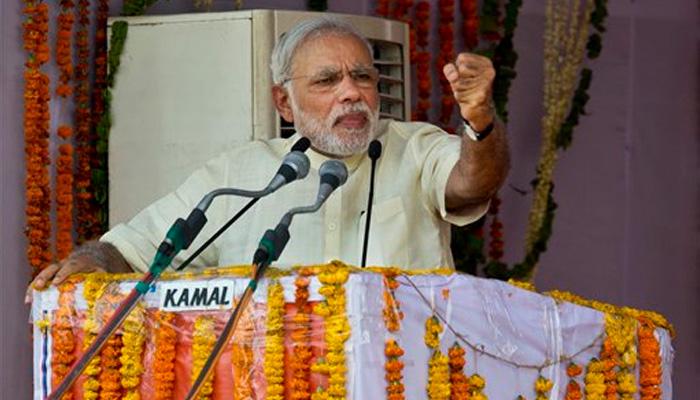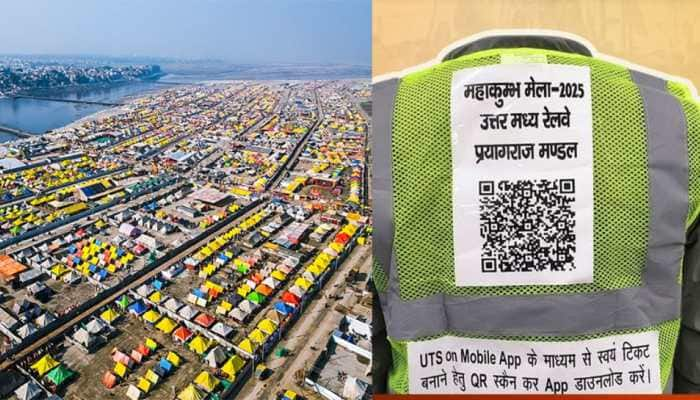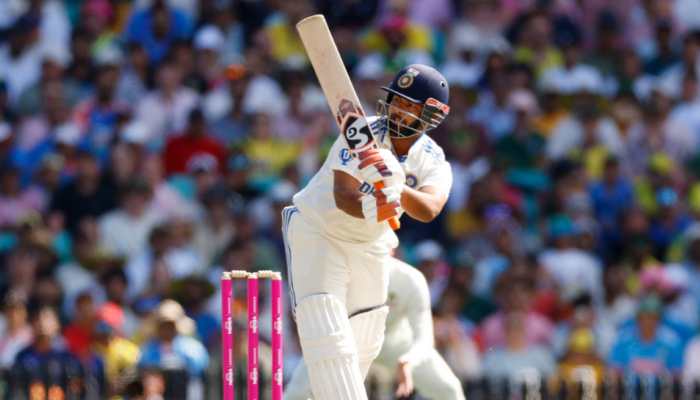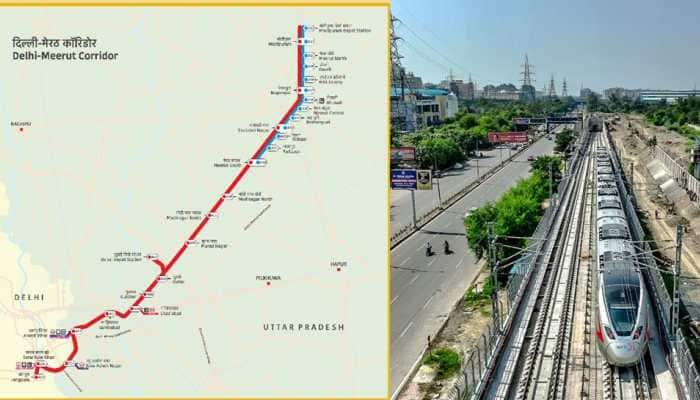Sonia Gandhi 'unconstitutional authority' during UPA: PM Narendra Modi
Prime Minister Narendra Modi on Wednesday made a scathing attack on Congress president Sonia Gandhi, suggesting that she had been an "unconstitutional" authority exercising "real" power over the Prime Minister's Office (PMO) during the 10-year rule of the United Progressive Alliance (UPA), whereas power was now wielded only by constitutional means.
Trending Photos
)
New Delhi: Prime Minister Narendra Modi on Wednesday made a scathing attack on Congress president Sonia Gandhi, suggesting that she had been an "unconstitutional" authority exercising "real" power over the Prime Minister's Office (PMO) during the 10-year rule of the United Progressive Alliance (UPA), whereas power was now wielded only by constitutional means.
The PM further dismissed the Congress president's accusation that NDA government was showing "obstinate arrogance" in Parliament and that it was a government by "one person", saying: "Perhaps, she is referring to the fact that earlier extra-constitutional authorities were the ones really wielding power".
He went on to say that power was now "wielded only by constitutional means".
If the charge is that "we are working through constitutional channels and not listening to any extra constitutional authorities, then I plead guilty to that charge," said the PM.
Talking to news agency PTI, the PM also responded to the criticism that all powers were concentrated in the PMO. "Your question is loaded. It would have been better if this question had been asked when an unconstitutional authority was sitting above the constitutional authority and exercising power over the PMO".
He emphasised that "the Prime Minister and the PMO are very much part of the constitutional scheme, not outside it".
He also said that increased powers had been delegated to individual ministries, which means that the decisions, which were earlier needed to be taken by the Prime Minister and the Cabinet, can now be taken by ministries themselves.
He said that the financial delegation for ministries had been trebled and devolution to the states had been increased.
"We have not made any changes in the business rules of the government and decisions are taken by those authorised to take them," he maintained.
'Suit-boot ki sarkar'
In response to Congress vice president Rahul Gandhi's "suit-boot ki sarkar" jibe, Modi said that the party had not been able to "digest" its crushing defeat in Lok Sabha polls even after one year.
"The Congress has suffered a crushing defeat and ended with less than 50 seats. Even after a year, they are not able to digest this. The people have punished them for their sins of omission and commission.”
Taking a dig at the Congress party, Modi further said: "We thought they learn from this, but it looks as though they are proving right the earlier saying that if con is the opposite of pro, then Congress is the opposite of progress.”
`Achche din`
"Is this not 'achche din'?" Prime Minister Narendra Modi said linking his election promise of 'good days coming' to a year of no scandals under his watch.
"You tell me, if there is not a single scandal, is this not 'achche din'?," he told the news agency in the interview.
Modi was answering a question whether people were being impatient and there were murmurs that he has not delivered 'achche din' as promised in the election campaign last year.
"The 21st century should be India's century but from 2004 to 2014 bad ideas and bad actions have affected the country adversely. Every day was a new bad day and there were new scandals. People were furious. Today, after a year, even our opponents have not accused us of bad actions," he said.
Land Acquisition Bill
On Land Acquisition Bill on which he has been charged by the Opposition with favouring the corporates, Modi said that while he did not want to get into political mudslinging, the subject of land was not with the central government which did not require lands. All rights relating to lands are with the states.
"However, I do want to ask whether those who allotted coal mines and forest land, rich with mineral resources, to their favourite corporates have the moral right to question this government which is working ceaselessly for the welfare of all sections of society," he said.
"The 120-year-old Land Acquisition Act was amended by the previous government without even 120 minutes of discussion in Parliament. Thinking the bill was good for farmers, we also supported it at that time.”
"Later, many complaints came from the states. One should not be so arrogant as to avoid correcting mistakes. So we brought the bill to rectify the errors, that too in response to the demands of the states. Anyone who looks at our proposed amendments without politically-tinted glasses will give us full marks," he said.
Asked if the government was open to suggestions on the bill, the Prime Minister replied, "Gaon (village), Garib (poor), Kisan (farmer)-if the suggestions are favourable to these downtrodden groups and are in the interest of the nation, we will accept those suggestions".
GST Bill
Prime Minister Narendra Modi asserted that the GST bill will be passed by Parliament in "a matter of time".
Notably, both the land and GST bills have been referred to parliamentary committees and the government is hoping they will be passed in the Monsoon Session of Parliament.
To a question on the pace of economic reforms being affected by the problems faced on crucial legislations like Goods and Services Tax (GST) and Land Bill in Rajya Sabha, the Prime Minister said both the measures were beneficial for the country.
"The core essence of these Bills should be appreciated by all the parties keeping aside political motives. Long term interest of the nation should be foremost.”
"The fact that the States have agreed to the GST design, shows the maturity of our federal system and the GST Bill has already been passed by the Lok Sabha. It is a matter of time before these laws are passed," he said.
To another question on what kind of message would foreign investors get if reform measures are not passed, he said, "One of the peculiarities of Delhi is that the term 'reform' is associated only with passing of laws in Parliament."
In fact, he said, the most important reforms needed are those without new laws, at various levels of Government, in work practices and procedures. "We have initiated a number of major reforms. These include decontrol of diesel prices, direct transfer of cooking gas subsidy, enhancement of FDI limits, revamping of railways and many others.”
"The truth is that reform has actually been pushed very fast and in fact as a result FDI has already witnessed an increase of 39 percent in the period April 2014 to February 2015 compared to the previous year," the Prime Minister said.
(With PTI inputs)
Stay informed on all the latest news, real-time breaking news updates, and follow all the important headlines in india news and world News on Zee News.
Live Tv







)
)
)
)
)
)
)
)
)
)
